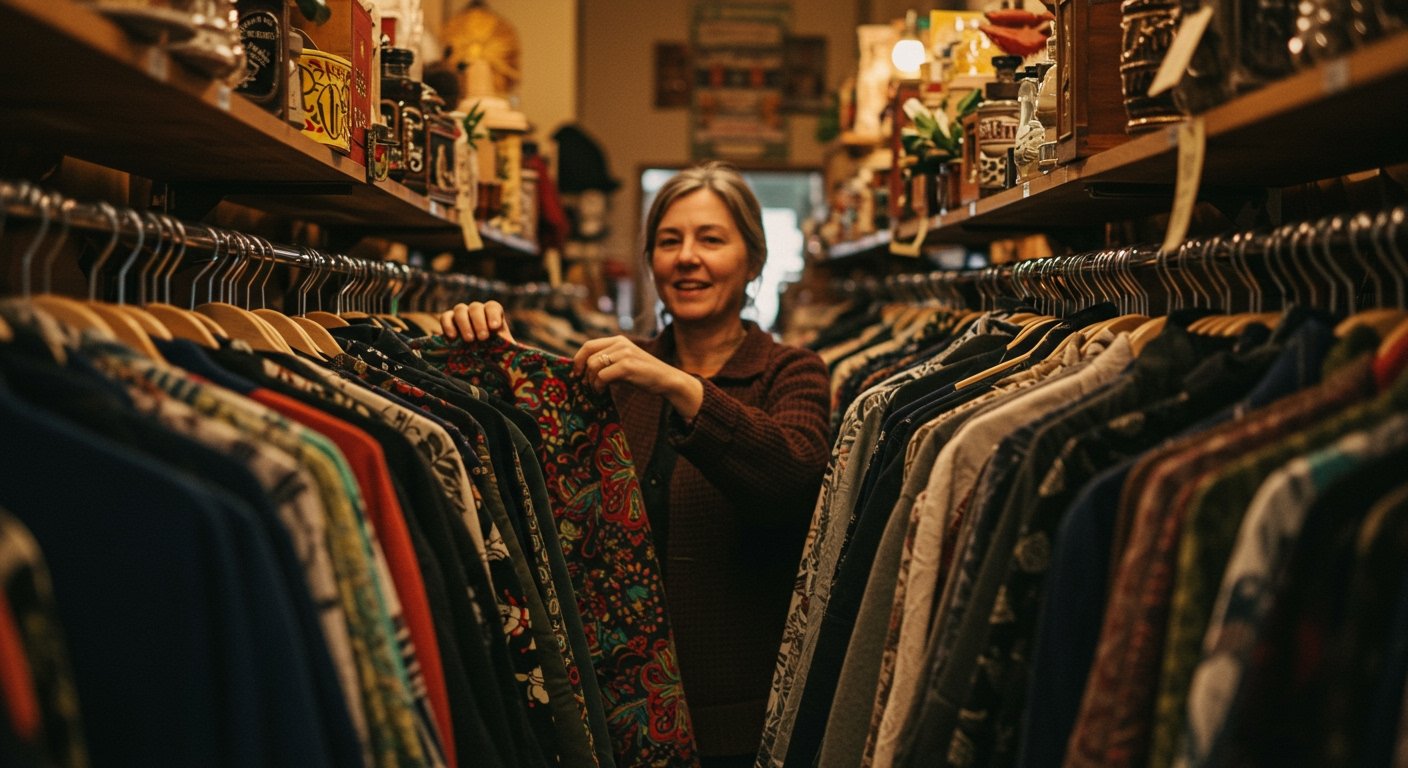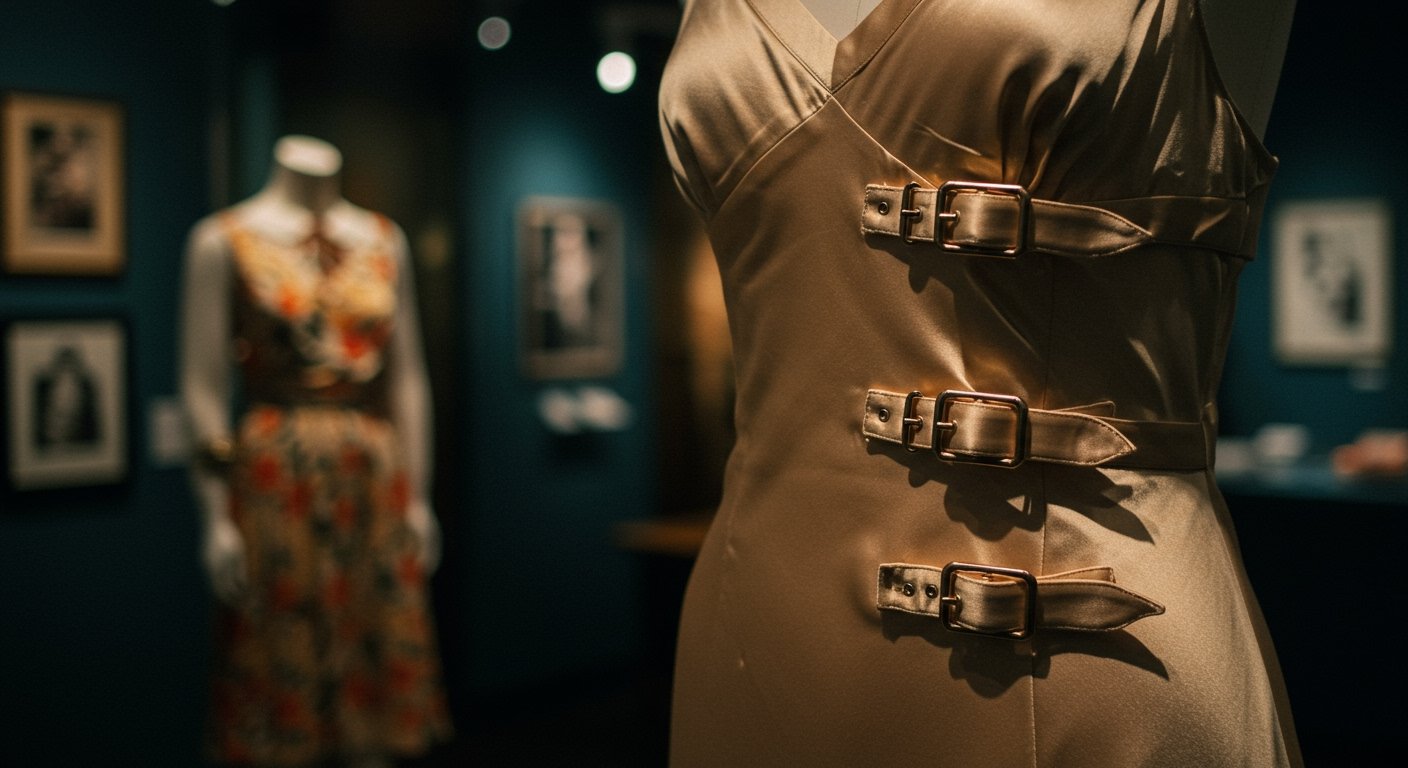In an era increasingly defined by digital transactions and large-scale retail operations, a second-hand clothing store in Oregon is forging a distinct path, prioritizing human connection and community building over sheer transaction volume. Oregon Fiber Traders, owned by Laural O’Rourke, stands as a notable example of this philosophy, demonstrating how commerce can serve as a vehicle for social engagement and connection.
O’Rourke’s vision for Oregon Fiber Traders is deeply rooted in her diverse life experiences. Drawing on a background that includes attending beauty school and working as a model, she views fashion not merely as apparel but as “wearable art.” This perspective underscores the significance she places on visual presentation and the expressive power of clothing, influencing her approach to curating inventory and creating an inviting space. Her professional journey in fields centered on aesthetics and appearance provided her with a nuanced understanding of how people interact with personal style.
Furthermore, O’Rourke’s perspective and strong work ethic have been profoundly shaped by her life experiences as a Black woman. Navigating the world through this lens has often involved facing scrutiny, an experience that has instilled in her a resilience and a keen understanding of the importance of perception and authenticity. This background informs her empathetic approach to her customers and her commitment to creating a welcoming environment for all.
Prioritizing Connection Over Capital
At the heart of O’Rourke’s business model is a belief in the fundamental human need for connection, a need she feels has become particularly pronounced following the global disruptions caused by the COVID-19 pandemic. While many businesses, including larger second-hand operations, focus primarily on efficiency and scaling capital growth, O’Rourke’s vision for Oregon Fiber Traders deliberately prioritizes community building. This distinction sets her store apart, positioning it as more than just a place to buy clothes, but as a hub for social interaction.
This deliberate focus on community contrasts sharply with the often transactional nature of larger retail entities. O’Rourke is building a business based on relationships, where the value exchange extends beyond the monetary. She is cultivating a space where individuals feel seen, heard, and connected, fostering a sense of belonging that can be increasingly rare in modern consumer environments.
Conversation as Catalyst
Central to O’Rourke’s community-building strategy is the emphasis she places on conversation. She views dialogue not just as a means of conducting business, but as a powerful tool for fostering genuine connections and, importantly, driving social change. By encouraging open and meaningful conversations within her store, O’Rourke creates an environment where ideas are exchanged, perspectives are broadened, and relationships are deepened.
This approach transforms the retail experience from a simple transaction into an opportunity for engagement and mutual understanding. It allows customers to connect with each other, with O’Rourke, and with the stories embedded in the second-hand items they discover. This focus on interpersonal connection creates a ripple effect, building a loyal customer base that is drawn as much by the store’s atmosphere and mission as by its unique inventory.
A Model for Conscious Business
Laural O’Rourke’s Oregon Fiber Traders offers a compelling model for conscious capitalism, demonstrating that a business can be both viable and deeply rooted in social purpose. By leveraging her diverse background and channeling her experiences into her entrepreneurial vision, O’Rourke has created a space that reflects her values.
In a retail landscape often dominated by speed and scale, O’Rourke’s commitment to building community through personal connection and thoughtful conversation stands out. Oregon Fiber Traders is not just trading fiber; it is weaving the threads of community, one conversation and one piece of “wearable art” at a time, proving that even in commerce, the human element remains paramount.



